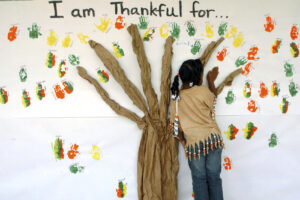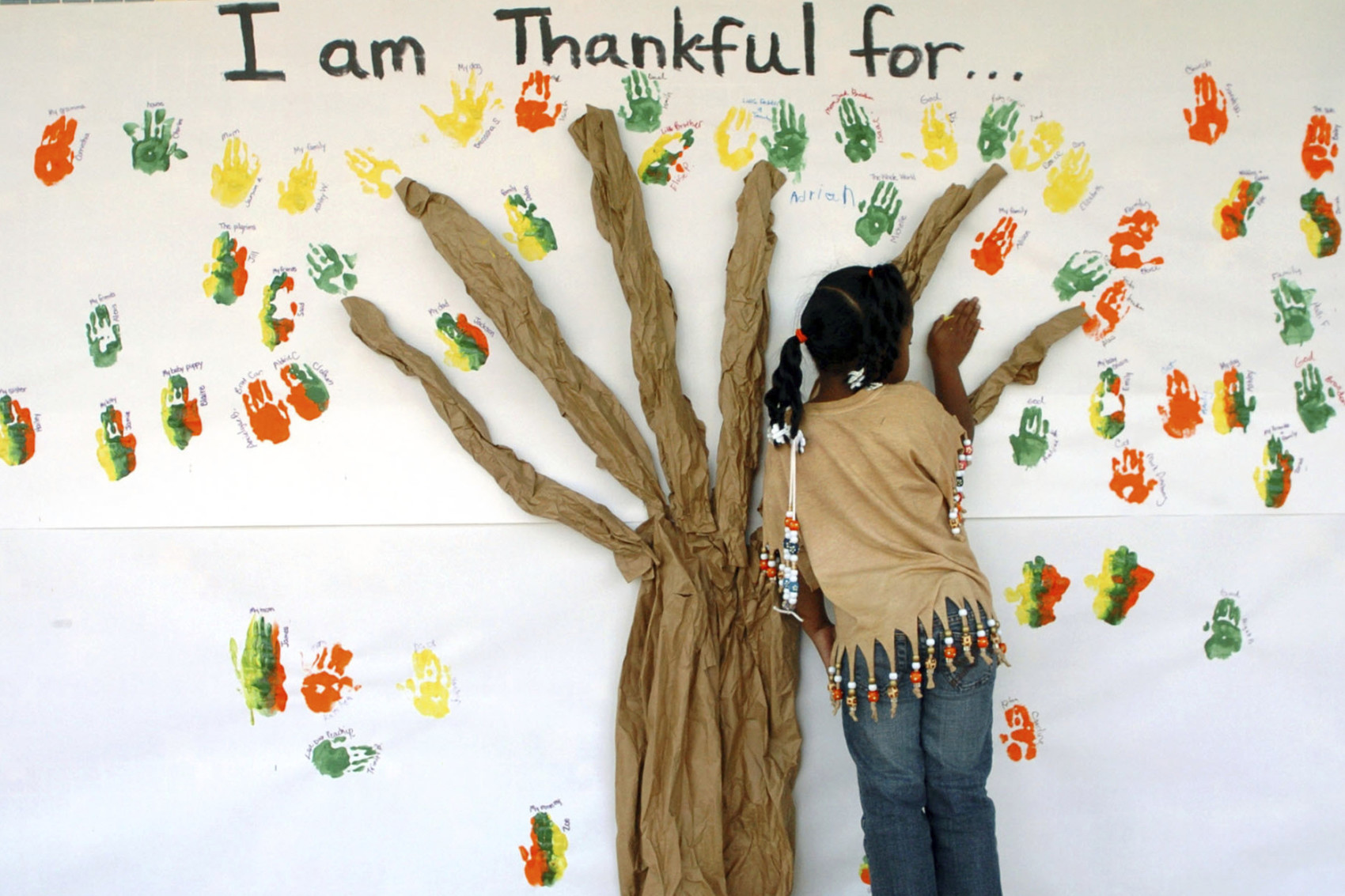
FILE – A student places her handprint along with those of other students at a primary school in Lufkin, Texas on Tuesday, Nov. 22, 2005. (Joel Andrews/The Daily News via AP, File)
It’s the season of giving thanks — and it turns out humans have been doing it for a long, long time.
As more researchers dig into the science of gratitude, they’ve found the feeling likely played a key role in helping our ancestors band together and survive.
That legacy continues today, as being in the mood for gratitude shapes who we are as a species and how we connect with the people around us.
“This is something that is part of our human DNA,” said Sarah Schnitker, a psychologist at Baylor University. “It is a glue, in a sense, that holds us together.”
The animal kingdom has some parallel give-and-take behaviors, said Malini Suchak, an animal behavior researcher at Canisius University. In experiments with capuchin monkeys and chimpanzees, Suchak found the primates became more willing to help out a partner if that individual had helped them in the past
In animals and in humans, these aren’t always one-to-one transactions. Sometimes, an ape that gets groomed by another will later back that partner up in a fight, Suchak said, showing that reciprocity might not be about keeping exact scores, but forming broader emotional ties.
Giving thanks might be good for you, too: A 2016 study found that people who wrote letters of gratitude reported better mental health and saw changes in their brain activity — even months down the line.
I – Word Understanding
Reciprocity – a situation or relationship in which two people or groups agree.
981 Giving thanks isn’t just a holiday tradition. It’s part of how humans evolved


